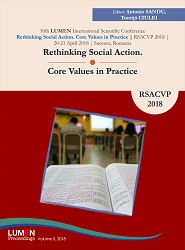What can Psychoanalysis Reveal us About Spinoza's Life and Work?
What can Psychoanalysis Reveal us About Spinoza's Life and Work?
Author(s): Marius Dumitrescu
Subject(s): Psychology, Essay|Book Review |Scientific Life, Social Philosophy
Published by: Editura Lumen, Asociatia Lumen
Keywords: psychoanalysis; Spinoza; thinking independence; emotions; ambivalence;
Summary/Abstract: Spinoza wrote the most fascinating politico-philosophical texts during his life, because these were intertwined with his life, with the events he attended and actively involved in, hoping for a reformation of the world in which he lived. Theologico-Political Treatise and On the Improvement of the Understanding reveal us that Spinoza does not belong to eternity, but to his time. He was a thinker who wrote first of all for its contemporaries, for the people of the 17th century.In this paper I will analyze in the psychoanalytic key these two texts and the context in which they were elaborated because we can better understand the philosopher's reaction to the events of his time.Firstly, I will point out that these two treaties wrote by the Dutch philosopher captured the spirit attempt to maintain its thinking independence on emotional tensions that threatened to throw the soul of man in the whirl of regrettable events and actions. Secondly, I will show that Spinoza, a man of his time, was directly involved in the complicated process that aimed solutions for a spiritual unification of the old continent in the second half of the 17th century. He was able to experience a vast array of emotional states ranging from ambivalence to fear and despair and from resignation to enthusiasm in front of scientific and political realities which were on the way to be acomplish in the favorable conditions of the new Europe that emerged after Peace of Westphalia.
Book: Rethinking Social Action. Core Values in Practice
- Page Range: 135-148
- Page Count: 9
- Publication Year: 2018
- Language: English
- Content File-PDF

